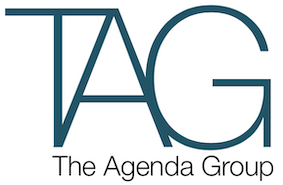Japan Postal Holdings’ $6.5-billion bid for Toll Holdings has won the backing of the board, but must pass further regulatory tests before the takeover is approved.
Under Australia’s foreign investment controls, bids of this nature are referred to the Foreign Investment Review Board (FIRB) for consideration and recommendation by the Australian Treasurer.
The threshold for FIRB consideration is triggered either by the monetary value of the bid, or by the nature of the bidder (there are different thresholds for foreign investment in Australian property).
In this case, Japan Postal Holdings (Japan Post) is currently a wholly state-owned entity, and as such automatically requires its proposed investment to be given FIRB consideration.
At the heart of Australia’s foreign investment policy is the notion of the ‘national interest’. The Australian Government has not relied on a tight prescription of what defines the national interest, but rather applies a series of broader tests and considers each application on a case-by-case basis.
As a separate process to FIRB considerations, The Australian Competition and Consumer Commission may, on referral from FIRB, examine any competition issues the Japan Post’s acquisition of Toll may pose, in accordance with Australia’s competition policy regime.
A simple desk-based analysis of the relevant tests suggest the Japan Post bid should navigate the FIRB process without too much difficulty.
The impact of the investment
An investment that enhances economic activity – such as by developing additional productive capacity or new technology – is less likely to be contrary to the national interest.
Toll was an attractive proposition for Japan Post as its expertise in mergers and acquisitions will be harnessed to support the businesses’ expansion across Asia and into the European and US markets.
Toll’s Australian customers stand to benefit from the introduction into Toll of new technologies and systems by Japan Post, and a greater focus on the growth in online and e-commerce services.
National security
The Government considers the extent to which investments affect Australia’s ability to protect its strategic and security interests.
Toll is a provider of logistics and warehousing services to the Australian Department of Defence. Existing service contracts may be considered, but it’s not obvious that these will pose any problems given their low sensitivity and Australia’s strong diplomatic relations with Japan.
Market control
The Government considers whether a proposed investment may result in an investor gaining control over market pricing and production of a good or service in Australia.
The transport and logistics market in Australia is an intensely competitive one, with multiple home-grown and international players vying for market share. Japan Post’s takeover of Toll is not going to have any impact on fundamental market dynamics in Australia.
Business restructuring
The Government will consider the impact of any plans to restructure an Australian enterprise following an acquisition. It also considers the nature of the funding of the acquisition and what level of Australian participation in the enterprise will remain after the foreign investment occurs, as well as the interests of employees, creditors and other stakeholders.
Early indications suggest that all of the 40,000 Toll employees and management will be maintained after the takeover. One of the unions covering Toll employees, the Transport Workers Union’s national secretary, Tony Sheldon welcomes Japan Post’s move:
“There are very few occasions where acquisitions can be a win for the workforce, a win for the shareholders and a win for management … This is one of those few occasions.”
The investor
The Government considers the extent to which the investor operates on a transparent commercial basis and is subject to adequate and transparent regulation and supervision. The Government also considers the corporate governance practices of foreign investors.
Japan Post Holdings is currently a wholly owned entity of the Japanese Government, though private ownership is planned commencing with an IPO later this year.
Japan Post operates in a similar environment to government enterprises in Australia, with minimal political interference, a clear charter, and public reporting requirements. As a listed company upon IPO, it will also be subject to the rules and regulation of the Tokyo Stock Exchange.
Bona fide business investment
Where a proposal involves a foreign government investor, the Australian Government also considers if the investment is commercial in nature or if the investor may be pursuing broader political or strategic objectives that may be contrary to Australia’s national interest.
An investment by a Japanese state-owned enterprise, given Japan’s status as a friendly, Western and democratic government operating in a context of high levels of transparency and accountability, in itself is not likely to cause any consternation for the Australian Government.
Further, the issue of Japan Post’s state ownership is moot, given the Japanese Government is preparing a staged sell-down of Japan Post through the first step of an IPO on the Tokyo Stock Exchange later this year, with suggestions of the possibility of a dual listing on the ASX post the IPO.
